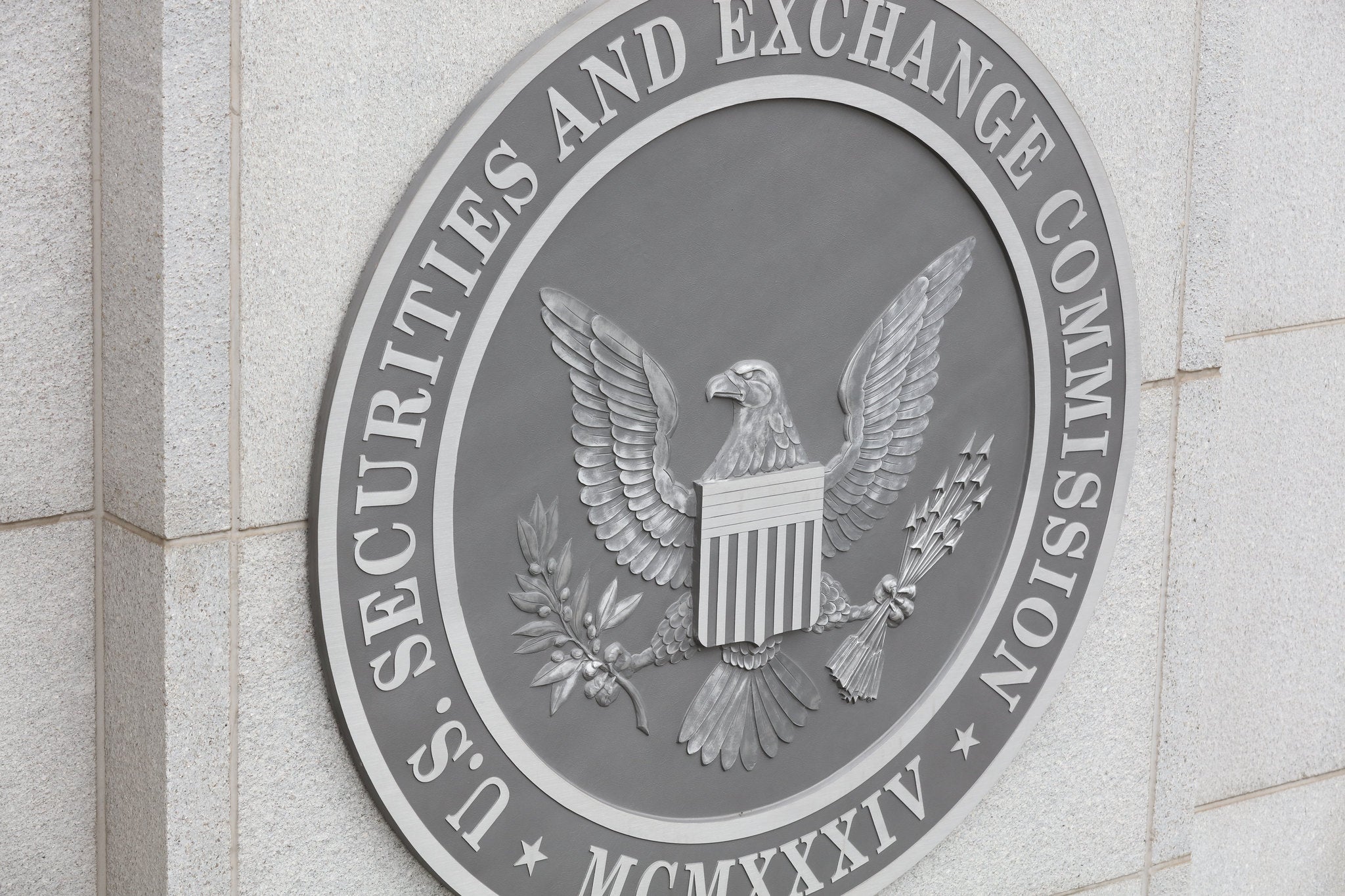Investors, bipartisan former officials, others defend SEC climate risk disclosure rule

Extreme weather caused by climate change is a threat to human health and safety, but it is also increasingly the cause of serious economic disruptions. And in the transition to a lower carbon economy, companies are navigating both opportunities and challenges.
The Securities and Exchange Commission (SEC) recently adopted a rule to better equip investors to manage these risks. The rule will standardize public companies’ disclosures of climate-related financial risk information. (You can read more details about the rule here).
The SEC’s rule has received widespread support from a diverse array of stakeholders. However, certain state attorneys general, oil and gas interests, the U.S. Chamber of Commerce, and others have challenged the rule in court.
EDF joined Americans for Financial Reform, Sierra Club, and Sierra Club Foundation (represented by Earthjustice) and Natural Resources Defense Council (NRDC) to support the SEC’s climate risk disclosure rule by filing an amicus curiae – or “friend of the court” – brief in the U.S. Court of Appeals for the Eighth Circuit.
Our brief shows that:
- The rule is rooted in decades of the SEC requiring financially relevant environmental disclosures and updating disclosure requirements to reflect evolving market dynamics and investor concerns.
- The rule is reasonable and firmly supported by rigorous evidence of the importance of climate risk information to investors.
- The rule furthers the SEC’s core missions of investor protection, market efficiency, competition, and capital formation.
Our brief is in good company. More than a dozen others from investors, experts, and a broad range of stakeholders have also been filed in support of the rule, underscoring the SEC’s manifest authority to require commonsense climate-related financial risk disclosure and the importance and benefits of doing so.
Here are a few highlights from filings supporting the SEC’s action:
Major institutional investors filed an amicus brief describing the rule as a crucial step towards addressing current disclosure shortcomings and better serving investor interests.
A group of institutional investors representing over $2 trillion in assets under management and including the largest public pension in the United States (the California Public Employees’ Retirement System) filed an amicus brief stating:
“This is exactly what Congress established the SEC to do: ensure that investors have the information they need to make informed investment and voting decisions.”
And the group points out that they are just a small subset of the broad investor support for the rule:
“Institutional investors representing more than $54 trillion in assets under management … submitted over 300 letters during the public comment process explaining the need for disclosures regarding climate-related risks, which result in hundreds of billions of dollars’ worth of exposure every year.”
The brief points out that retail investors benefit too:
“Better information in the market will mean more accurate pricing and less volatility, which benefits people with invested savings even if they never access the information themselves.”
States and policymakers support the rule as legally sound and urgently needed.
A coalition of 19 state attorneys general (AGs) intervened in support of the SEC.
The state AGs argue that the rule, informed by “undisputed evidence” and consideration of investor and issuer feedback, falls within the SEC’s statutory authority to further the “public interest in efficient, stable securities markets and to protect investors by providing information relevant to investment and voting decisions.”
The AGs brief states that the rule does not trigger the major questions doctrine, and it complies with the First Amendment because it “directly and appropriately advance[s] SEC’s substantial interest in protecting investors and preserving efficient securities markets without unnecessarily curtailing protected expression.”
In two other briefs, the Attorney General of California and several Members of Congress – Senators Sheldon Whitehouse (D-RI) and Brian Schatz (D-HI) and Representatives Sean Casten (D-IL-6) and Juan Vargas (D-CA-52) – emphasize the tremendous threat climate-related events pose to the overall health and stability of our financial system and investors’ crucial need for disclosure of material climate-related information.
Bipartisan former SEC officials and expert scholars explain that the rule aligns with the SEC’s authority and offers substantial benefits to our financial markets.
A bipartisan group of former SEC officials and leading law, finance, and economic scholars filed an amicus brief emphasizing that the standards “fall well within the disclosure authorities granted by Congress to the SEC.”
The brief says the “clear language and structure” of both the Securities Act of 1933 and Securities Exchange Act of 1934 give the SEC authority to “mandate disclosure related to securities-related risks and opportunities, limiting that authority to requirements ‘necessary or appropriate in the public interest or for the protection of investors … For fifty years, the SEC has exercised that authority to require disclosures related to environmental matters.”
Administrative law scholars filed a separate brief, similarly affirming that the rule falls “squarely within the SEC’s long history of exercising authority” under the securities laws to “require companies to disclose a range of risks related to their finances and operations in order to ensure that investors may make well-informed investing and voting decisions.”
The administrative law scholars’ brief states that petitioners’ arguments for striking down the rule based on the major questions doctrine “fail[] at the first gate” because the rule is “far from novel, unheralded action” and “satisfies none of the threshold elements.”
Constitutional law scholars filed a brief arguing that the rule “directly advance[s] the Commission’s longstanding mission of protecting investors and markets.” The disclosures reduce information asymmetry and mispricing, thereby promoting market efficiency and stability. And “because registrants otherwise remain free to speak or opine about climate-related issues in any way they wish, the disclosures do not chill registrants.” For all these reasons, the rule is not “unduly burdensome” and does not raise First Amendment concerns.
The Institute for Policy Integrity filed a brief demonstrating that the petitioners’ argument that the rules are “too costly given the benefits they provide” is based upon economic analyses that are fundamentally flawed:
“Much of corporate America already provides or will soon provide climate-related disclosures, either voluntarily or to comply with mandatory disclosure laws in other jurisdictions,” a critical data point that the petitioners ignored.
And IPI’s brief points out that the benefits of the rule are significant – providing investors with specific, comparable, and decision-useful information.
Other groups, including public interest organizations and sustainable business coalitions, underscore the critical importance and strong legal foundation of the rule.
Sustainable business groups filed a brief highlighting the importance of the rule providing more consistent and comparable information about climate-related financial risks. Their brief also points out that “many SEC registrants, already must collect, analyze and disclose greenhouse gases … emissions and other climate-risk information under U.S. and non-U.S. laws.”
A brief from carbon offset experts affirms the usefulness for investors of the rule’s carbon offsets-related disclosure requirements.
Better Markets and the Consumer Federation of America filed a brief saying that the rule is a “necessary and appropriate exercise of the SEC’s crystal-clear statutory authority to require company disclosures that protect investors and serve the public interest.”
In two separate briefs, Public Citizen and the Constitutional Accountability Center similarly argue that the major questions doctrine is inapplicable to the rule as it is far from asserting “extraordinary” regulatory power.
Together, all of the briefs show that there is widespread support for the SEC’s climate risk disclosure rule and that the court should uphold it.
The SEC climate risk disclosure rule stands on solid legal ground and will provide vital protection for all people with savings invested in the stock market amid escalating climate-related risks and opportunities.












